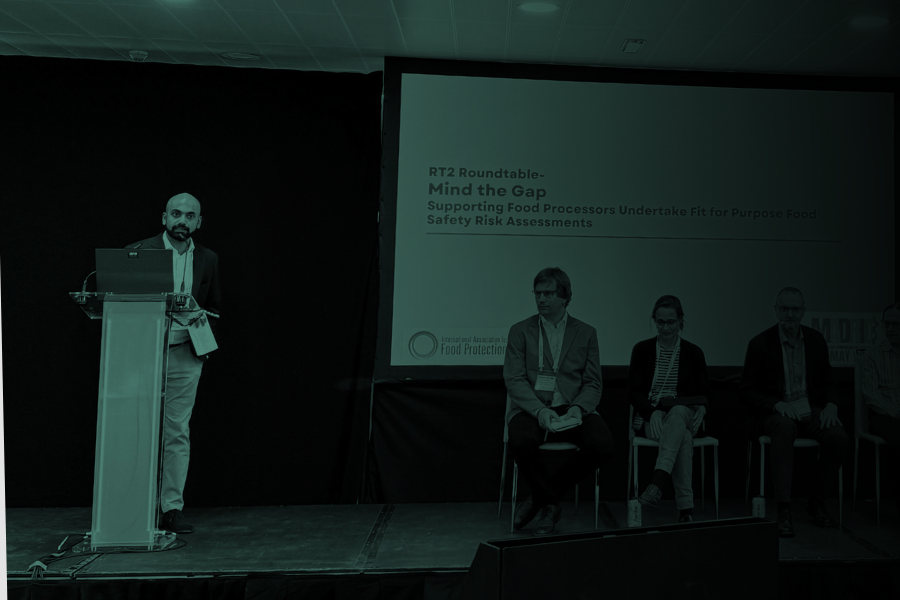The International Association for Food Protection (IAFP) 2025 European Symposium, held in vibrant Madrid, brought together over 500 global food safety professionals, scientists, regulators, and industry leaders. With a unifying theme of “advancing food safety through innovation, collaboration, and digital transformation,” the three-day event offered a forward-looking agenda aimed at navigating the challenges and opportunities of a rapidly evolving food landscape.
Dr. Dipon Sarkar, Food Safety Consultant at Victual, attended the symposium and captured valuable insights especially relevant to Australia’s food and beverage sector.
Key Takeaways & Insights
1. Digital Transformation Leading the Way
Major food manufacturers are implementing AI-powered digital HACCP systems that shift from reactive to predictive safety management. These systems utilise AI for hazard identification, real-time risk assessment, and centralised data libraries that eliminate operational silos.
2. Rethinking Testing
There’s a growing recognition that testing for compliance doesn’t always equate to testing for true safety. Contextual, risk-based testing strategies are becoming essential.
3. Safe Harbors Under Review
Traditional benchmarks—such as 12D reductions for Clostridium botulinum—are being challenged by new product formats and processing technologies. Experts called for renewed validation of these “safe harbors” to ensure they remain relevant and defensible. For Australian manufacturers using novel processing, assumptions about lethality and shelf life may need revisiting.
4. AI-Assisted Risk Negotiation
A novel framework using game theory and AI is emerging to support food safety trade-offs between stakeholders. It simulates negotiation dynamics to reach balanced, transparent decisions—currently being trialled in U.S. retail settings.
5. The Data Revolution and AI Ethics
The industry faces a “data deluge” where power lies in knowing what to ignore. AI’s expanding role in food safety brings both promise and concern. Sessions tackled the risks of algorithmic hallucination, data bias, and misplaced trust in automation. Human oversight, interpretability, and governance were identified as non-negotiable pillars.
Takeaways for Our Clients
- Digitisation Foundations:
While AI promises smarter food safety operations, it cannot deliver value without robust digital infrastructure. Digitised HACCP systems and integrated data platforms are essential foundations for predictive risk management. Australian providers such as Veeva and Foods Connected are enabling this transformation across the sector. - Validating Novel Processes Is Critical:
Standard processing benchmarks—like pasteurisation regimes—may not apply to emerging products such as plant-based milks or alternative proteins. Relying on traditional safe harbours or indicator organisms without appropriate validation can result in false confidence and regulatory risk. Proactive validation is essential for both compliance and market access. - Beyond Compliance:
Food safety programs should evolve beyond checkbox audits and routine indicator testing. Align your audit plans, enterprise risk systems, and leading indicators with true risk drivers—enabling earlier detection, stronger control, and clearer accountability. - Horizon Scanning Is No Longer Optional:
Rapid changes in the operating environment and supply chain highlight the importance of keeping on top of emerging risks. Structured horizon scanning helps organisations anticipate issues early—whether they relate to ingredients, regulatory shifts, new technologies, or global disruptions—and respond with agility.
The symposium reinforced that while innovation accelerates, successful implementation requires collaboration, clear communication, and practical contextualization—particularly crucial for Australia’s diverse food and beverage SME sector.
Victual is committed to supporting your journey across all these fronts—from risk assessment and validation to digital system readiness and insurance alignment.
Contact us for more information and enquiries.


